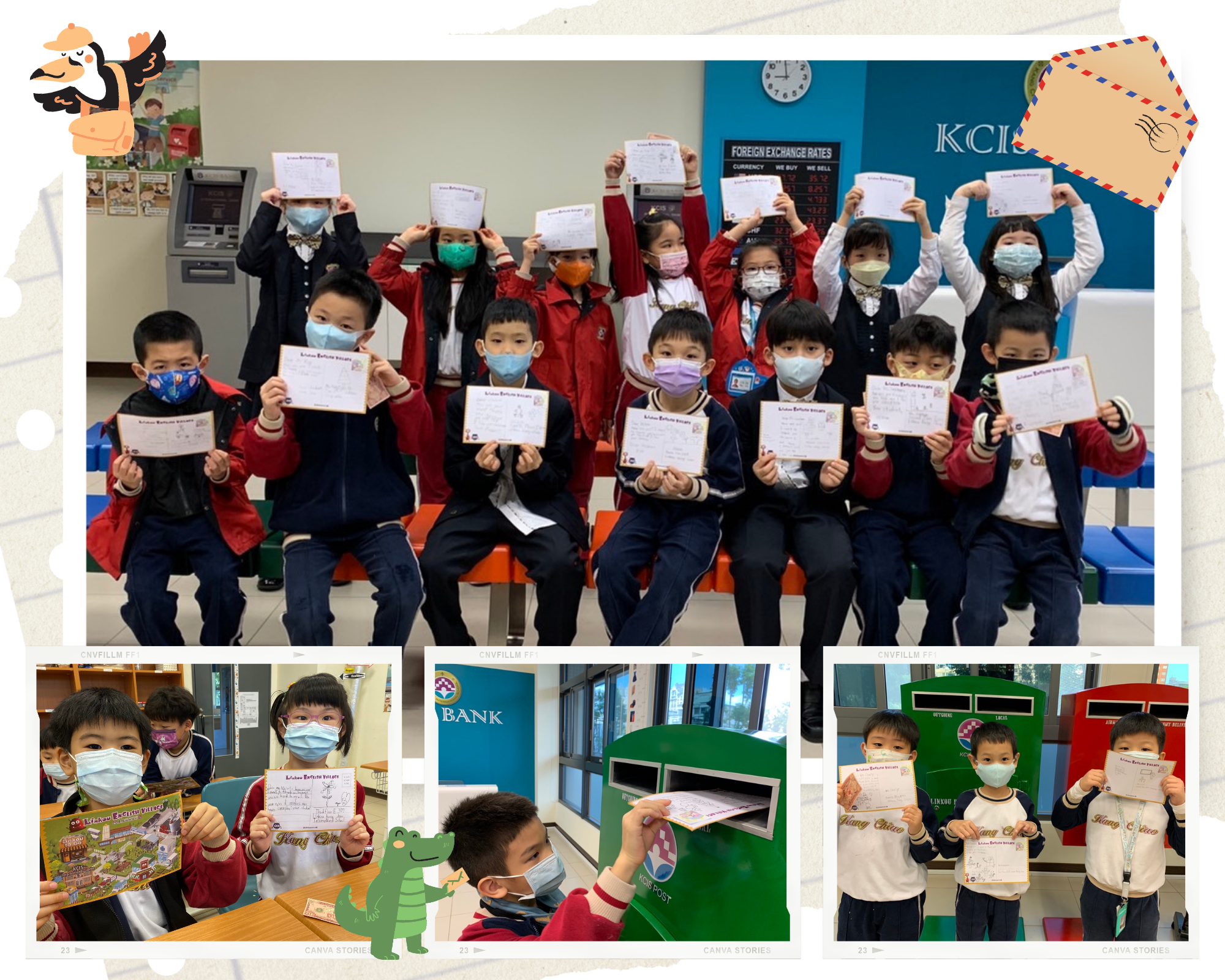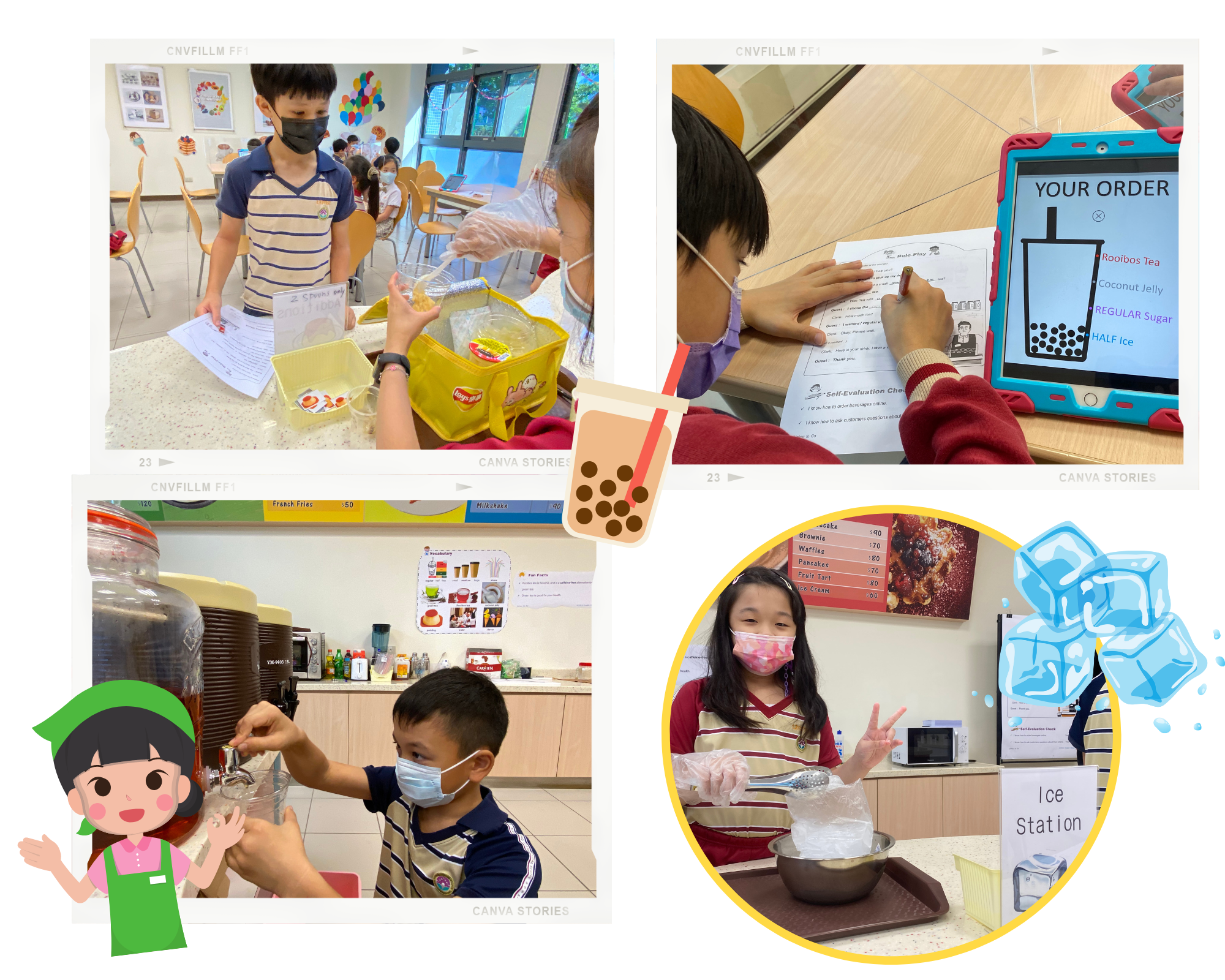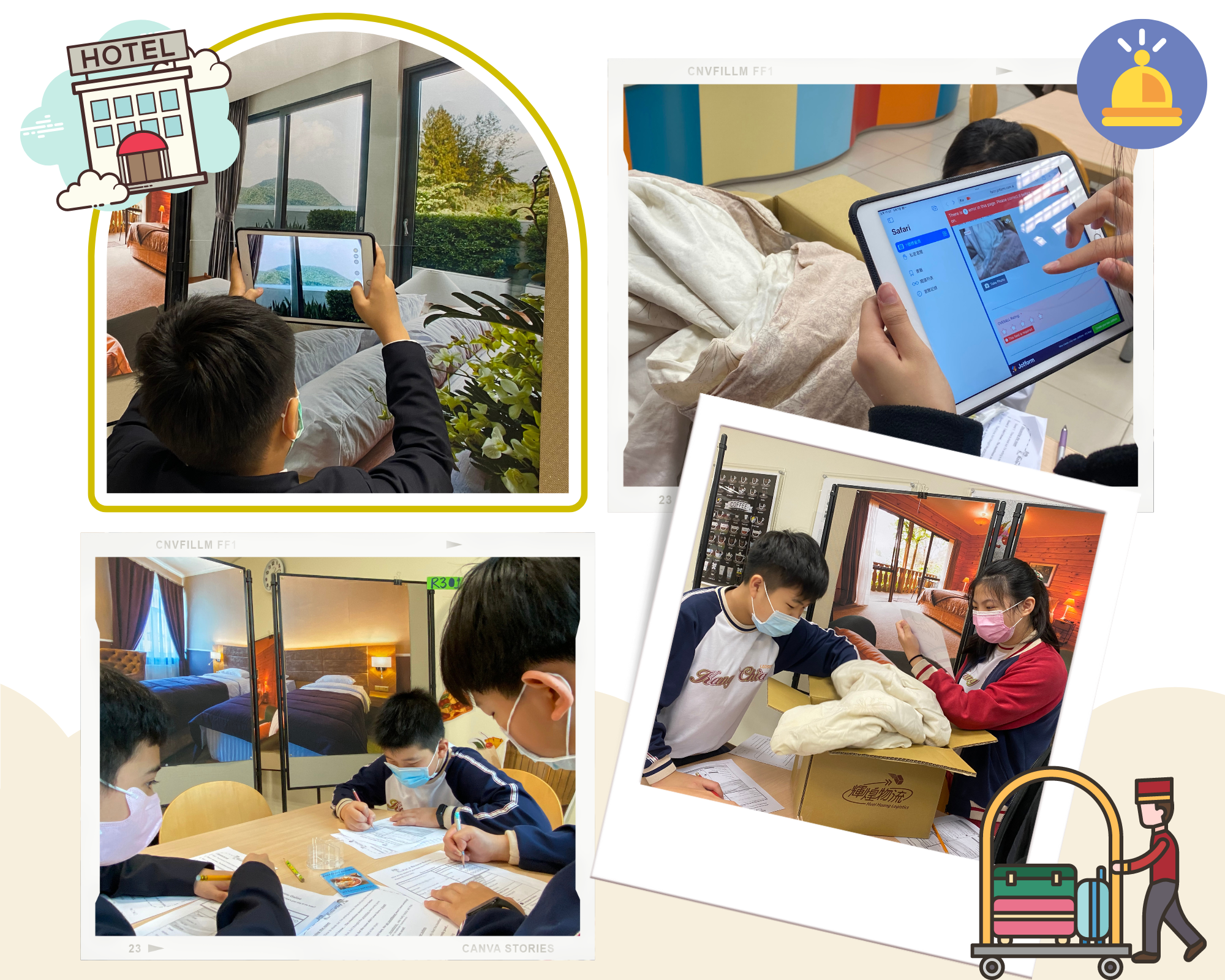


English Teacher Florence Yeh & Donald Arnold
“Nothing ever becomes real until it is experienced”. It’s a beautiful quote that expressed by an English poet, John Keats. Applying English skills to the English Village lesson (EV lesson) is not the only purpose in the class. We believe that a learning process for our students that is building up their experiences would include the following elements: student engagement, a well-defined introduction of the theme, and the problem solving ability.
Last year in English village, we had a number of goals going into this school year. We covered the same themes that were covered two years ago in the 2019-2020 school year. We looked at the lessons that were completed two years ago, and we reflected on the learning objectives of each theme. We addressed the learning concepts which could be improved by coming up with new solutions. We also aimed to make the lessons more relevant to the students’ real lives. We took steps to improve student engagement. We worked to deepen the students’ understanding of the themes. Some of the ways we did this was by bringing the venue environment to life (with visuals and hands-on elements) and by giving students an opportunity to interact with the venue. We also incorporated technology as often as possible whenever it was appropriate to do so.

For the Post Office lesson for grade 1 and 2, we kept the idea of writing postcards, but we taught the students about Thanksgiving and focused on the theme of thankfulness. We encouraged students to reflect on what they should be thankful for, and this helped them formulate more thoughtful messages for their postcards. They wrote a postcard for one of their teachers, and later the teachers received all the postcards that had been written for them. This helped deepen the students’ understanding of the theme.

For the Linkou to Go lesson for grade 3 and 4, we kept the concept of making and ordering bubble tea, but we taught the kids about ordering drinks online (on apps like UberEats). We created an interactive iPad activity in which students selected their preferred tea, topping, sugar level and ice level, and then confirmed their order and had it repeated back to them on the screen. This helped make the lesson more relevant to the students’ real life. ELA teachers were also heavily involved in this lesson. They participated in the process of making the drinks and they spoke with each student about their order.

For the KCIS Hotel lesson for grade 5 and 6, we kept the concept of forming opinions about a hotel room – the previous version of the lesson involved calling the reception desk to make a complaint. This time around, the students received a key to one of five different rooms, each with its own aesthetic, a different breakfast, and a different view outside the window. Students received a box of amenities that they could actually take out and see and touch. Some of the amenities had a very obvious flaw or problem (like a pillow with a green stain on it). Students formed opinions on all of these different aspects, and filled out an online review form using iPads. ELA teachers helped facilitate the conversations at each table and asked appropriate questions to aid students in reflecting on the location, food, amenities, etc. as they formulated their opinions and completed their review. This updated lesson achieved all of our goals. It increased student engagement, deepened the students’ understanding of the theme, and made the lesson more relevant to the students’ real life.